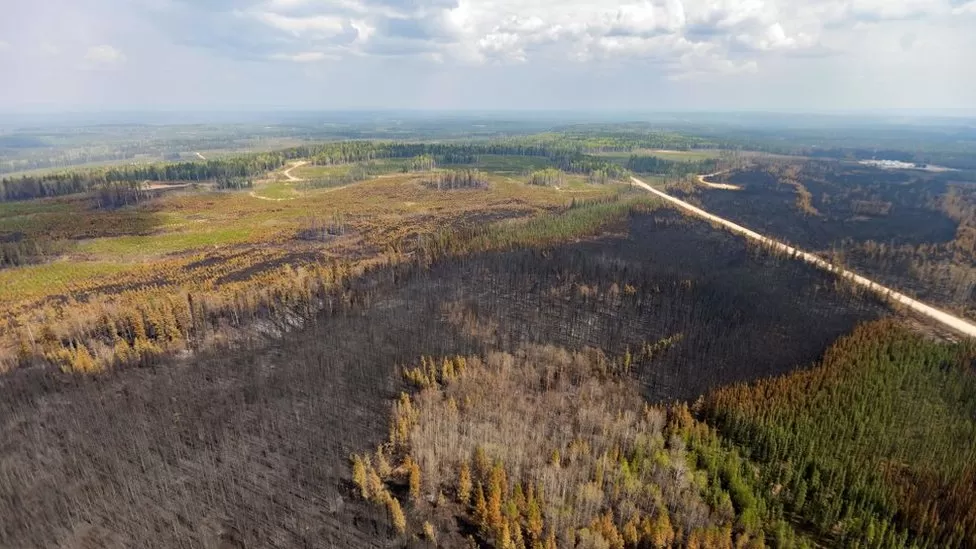The risk of wildfires is predicted to rise in June and stay unusually high throughout the summer with little relief.

The country of Canada is preparing for what meteorologists predict could be the worst wildfire season on record. 2,214 fires have already broken out this year, consuming an area roughly equal to Belgium’s size.
The risk of wildfires is predicted to rise in June and stay unusually high throughout the summer with little relief.
The federal minister of natural resources referred to this season’s projections as “sobering.” Jonathan Wilkinson stated at a news conference on Monday that the situation “shows us that this year’s already devastating season could well get worse.”
The number of wildfires that Canada has already experienced this year is “unprecedented,” according to officials, for this early in the wildfire season, which typically lasts from May to September.
Over 3.3 million hectares of land have been burned by the fires nationwide, which is about 12 times more than the average for the previous ten years.
The cause of this trend, according to experts, is an abnormally warm and dry spring. The summer is expected to be warm and dry, which will increase the risk of wildfires from British Columbia on the west coast to Atlantic Canada on the east.
If the pattern holds, the nation may experience its largest-ever wildfire burn.
Michael Norton, director general of the Northern Forestry Centre at Canada’s Department of Natural Resources, stated that “Climate change is increasing the frequency and intensity of wildland fires and creating longer fire seasons in Canada.”
There were 413 wildfires burning across Canada as of Sunday, 249 of which were deemed to be out of control.
Up until now, wildfires have compelled the evacuation of 100,000 people nationwide.
Many have since gone back to their homes, but according to officials, 26,000 people in seven different provinces and territories are still being evacuated.
On May 10, 2023, a wildfire-damaged landscape can be seen close to Entrance in the Wild Hay region of Alberta, Canada.
The province’s natural resources department reported that rainy weather helped to put out a wildfire near Halifax, the largest city in Nova Scotia, over the weekend.
Over 200 homes and other buildings were destroyed by the fire, which also required 16,000 people to leave their homes. Since then, some people have been able to go home.
New fires have started elsewhere, including in the province of Quebec, where as of Monday, there were about 164 fires burning and more than 10,000 people had to leave their homes.
Canada has sent its military across the nation to fight wildfires alongside local firefighters.
On the scene to assist are also close to 1,000 firefighters from other nations, including the US, Australia, New Zealand, and South Africa.
French President Emmanuel Macron announced over the weekend that his nation will send an additional 100 firefighters to Quebec.
The country’s current wildfire situation, according to Prime Minister Justin Trudeau on Monday, is “difficult and heart-breaking.”
There are several burn bans in effect across the nation, and authorities have advised Canadians to exercise extra caution in areas thought to be at a high risk of wildfires.